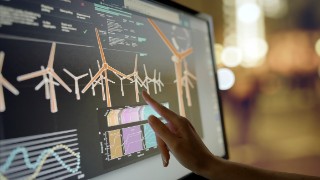
As part of its data strategy, the European Union (EU) has created a far-reaching legal basis for digital value creation through data in Europe – including in the energy industry. While the Data Act (DA) greatly expands data availability in the energy system, the Data Governance Act (DGA) regulates trustworthy transaction options for this data. In their new white paper, researchers from the Fraunhofer Cluster of Excellence “Integrated Energy Systems” (CINES) describe how data exchange can take place under these conditions in three energy industry scenarios. They advise affected companies to prepare for the coming digitalization with a data strategy.
more info Cluster of Excellence Integrated Energy Systems
Cluster of Excellence Integrated Energy Systems